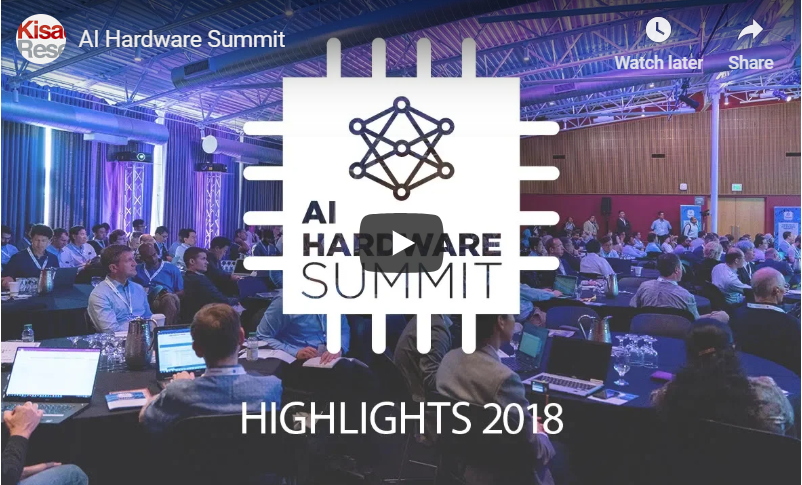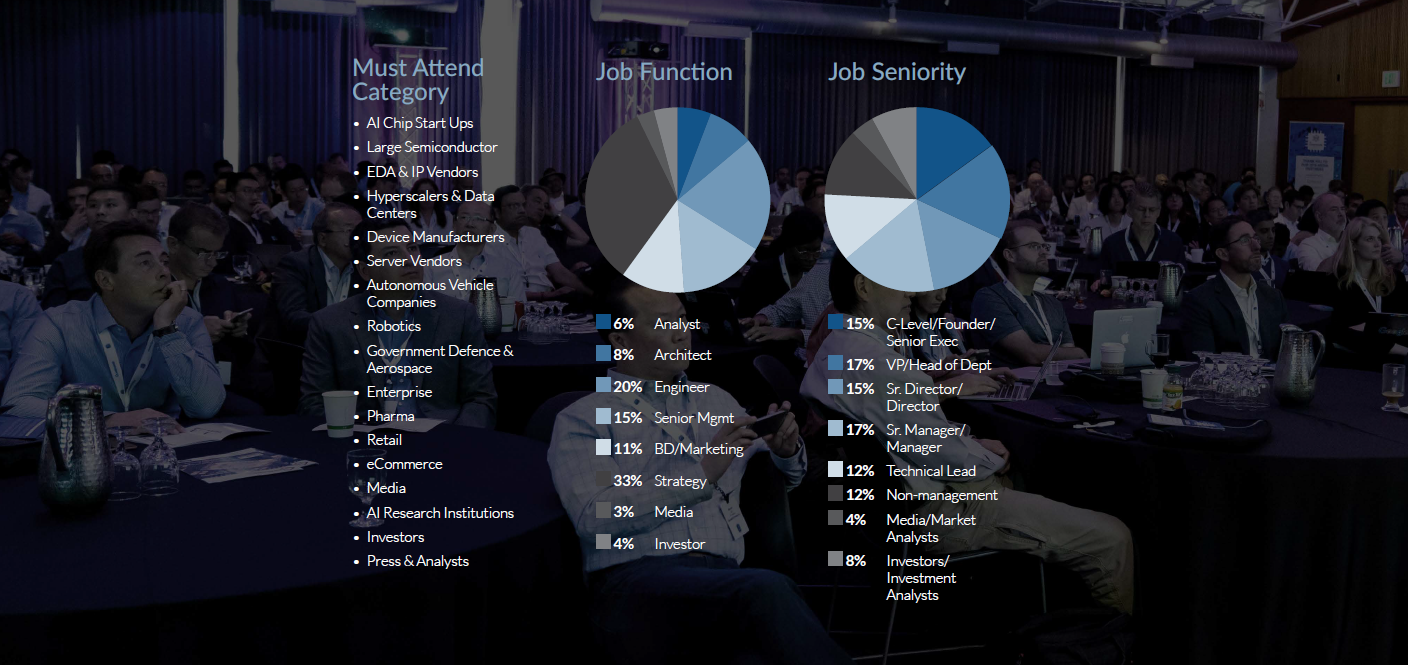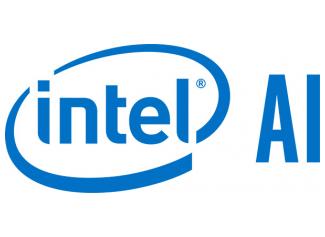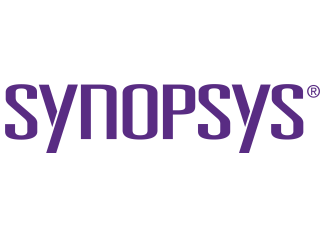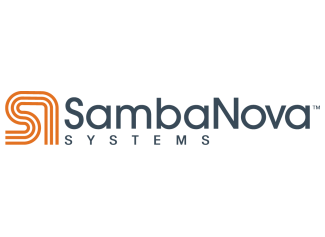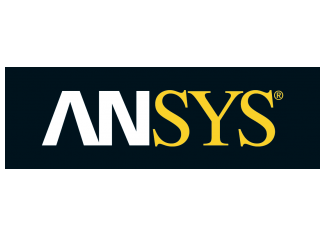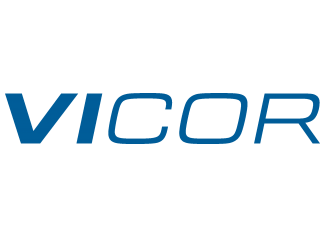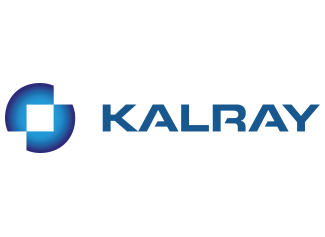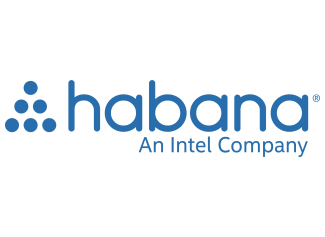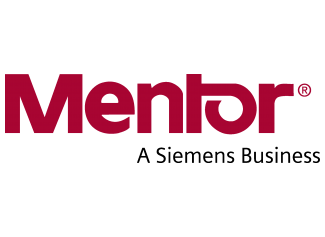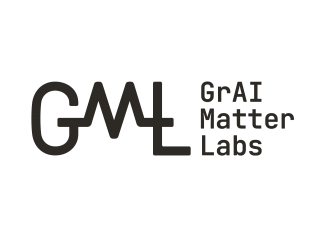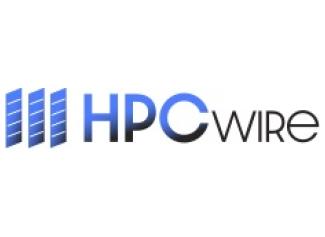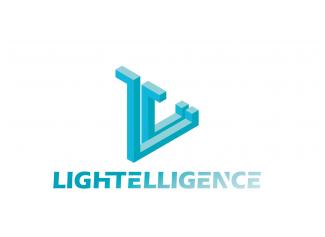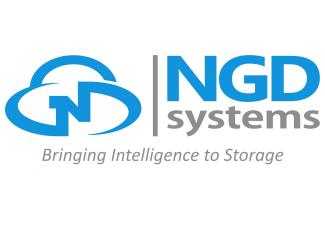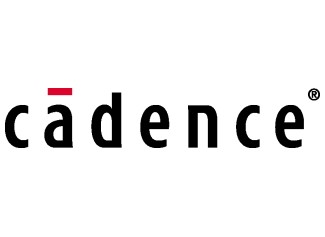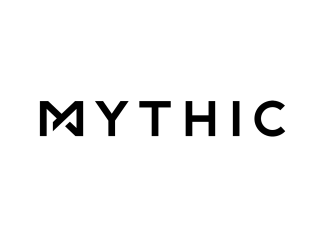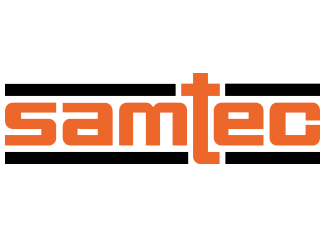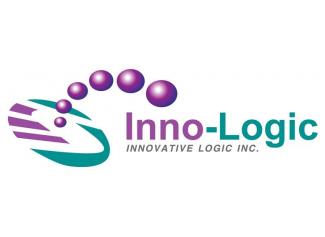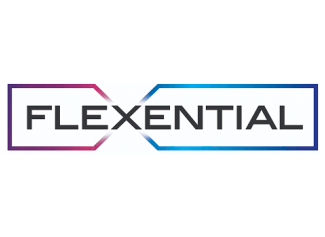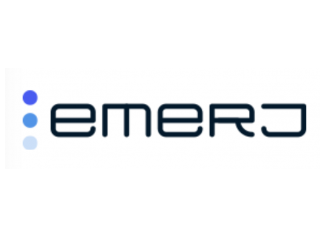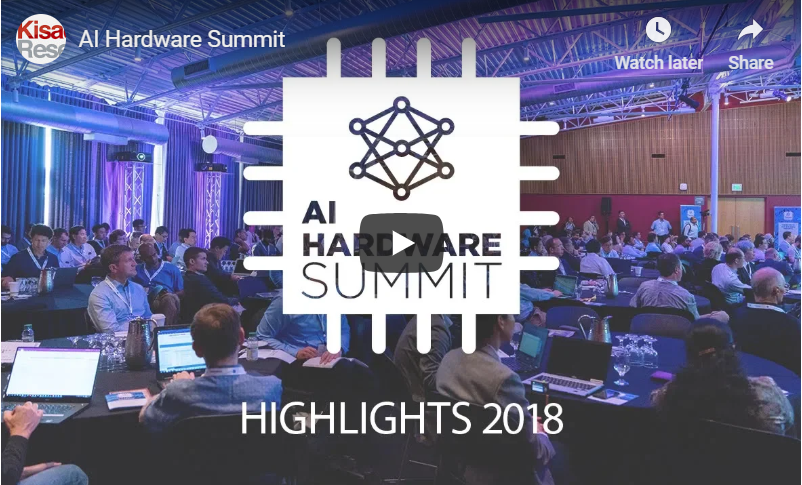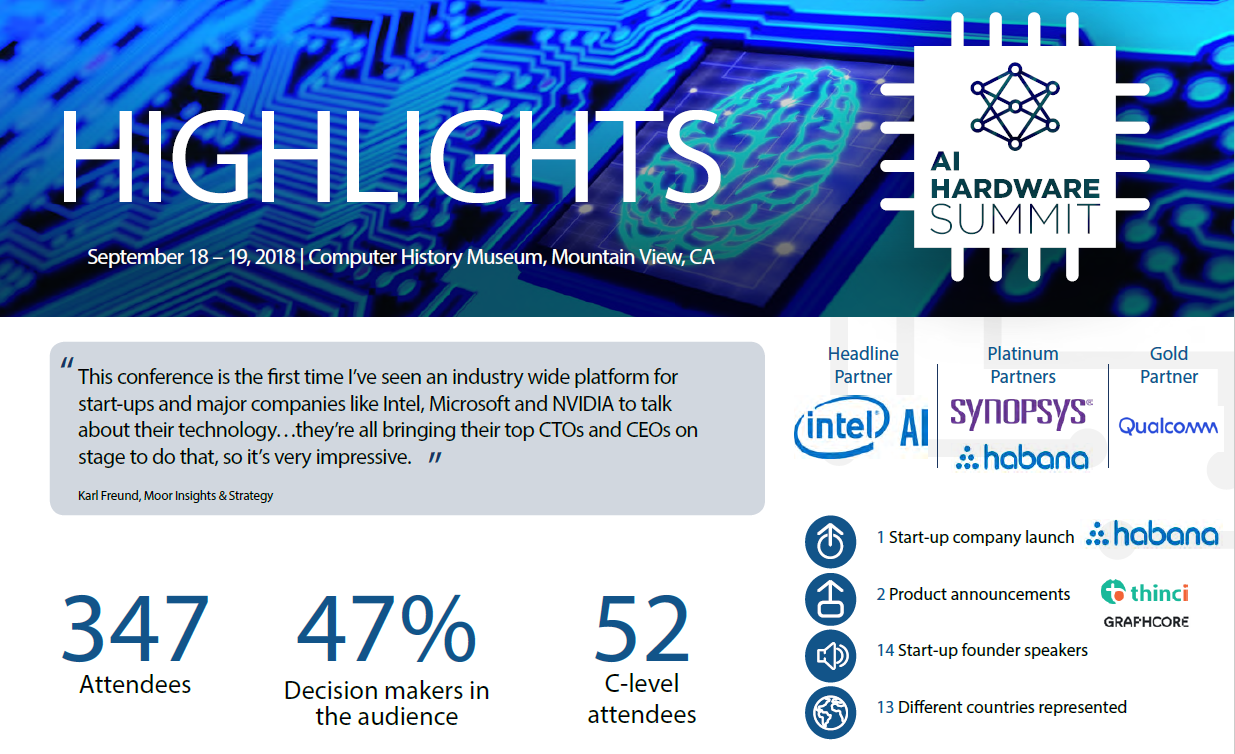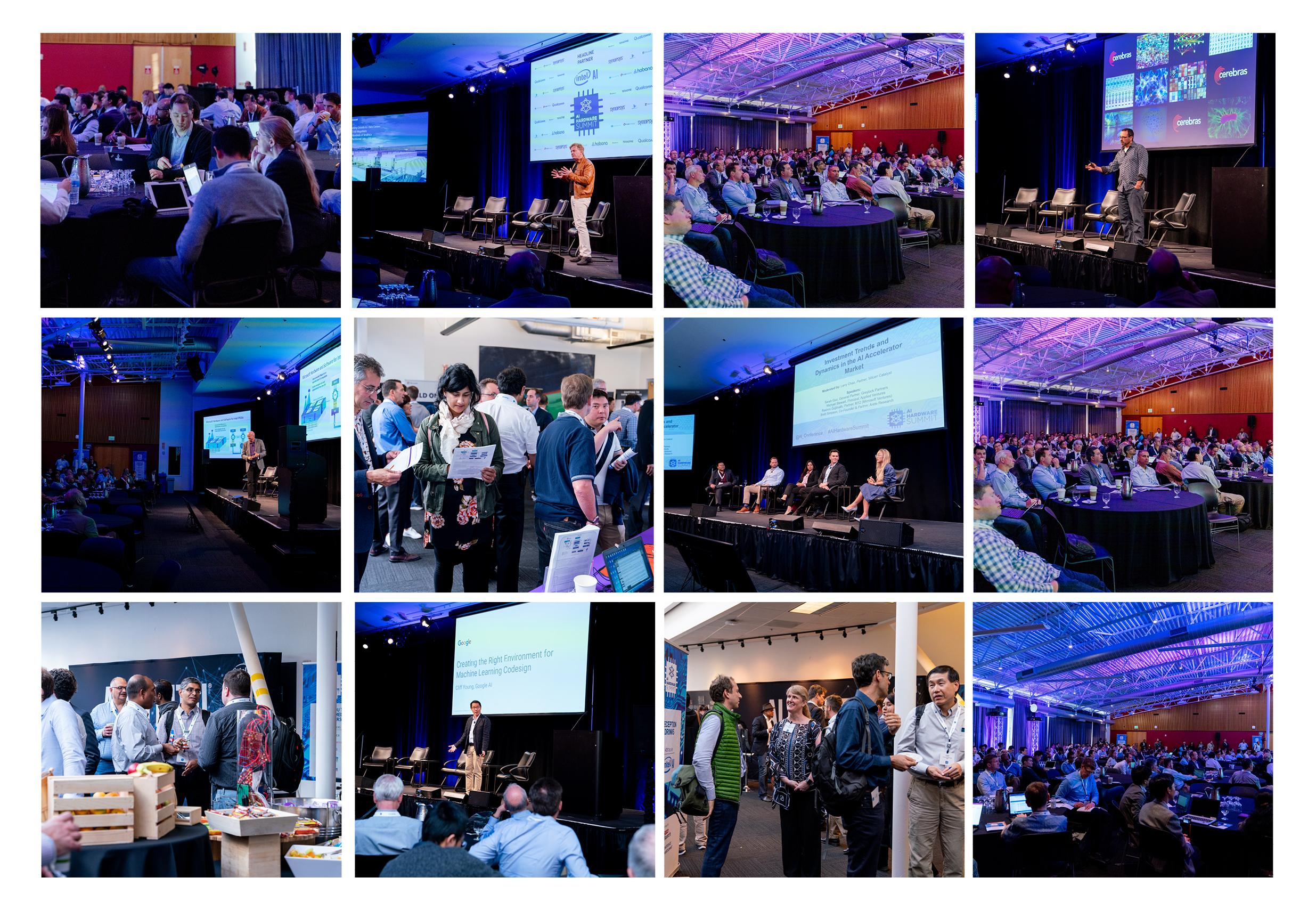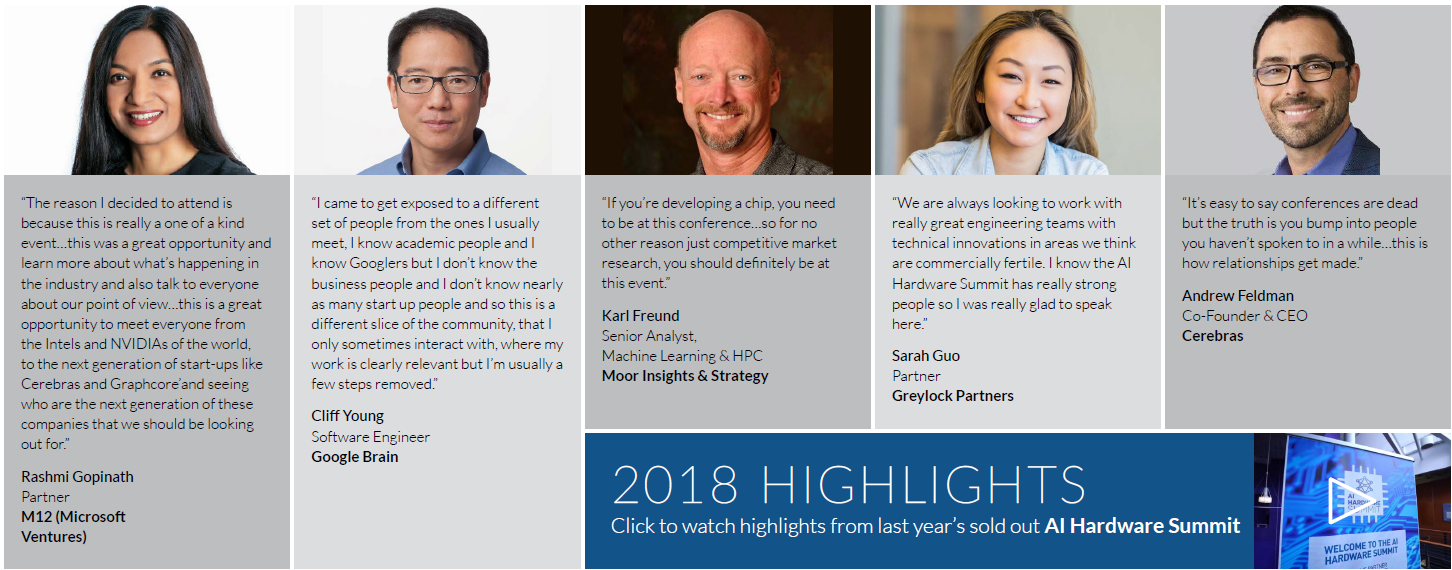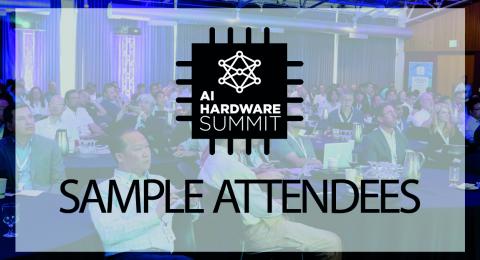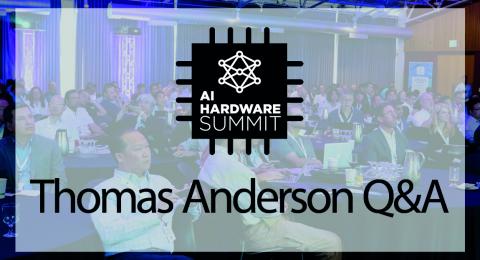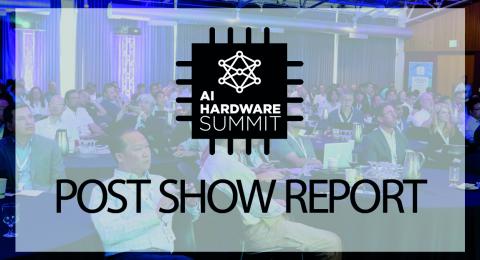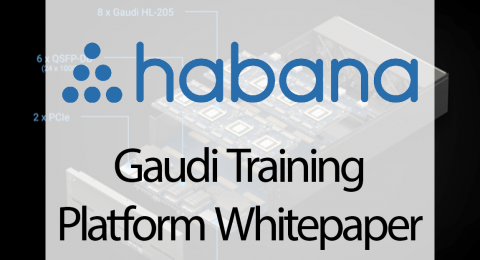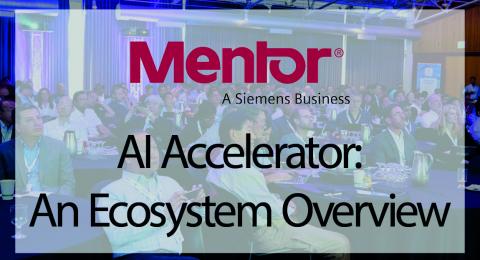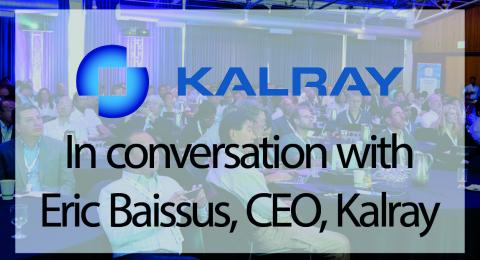
Aims of the 2019 Summit
The inaugural AI Hardware Summit sold out in 2018 and is the premier event for the AI chip ecosystem.
The 3 core aims of the Summit are:
- To assemble the critical mass of the global industry to promote innovation and adoption of silicon & systems for processing deep learning, neural networks & computer vision.
- To serve as the venue where the technology roadmap of emerging AI hardware is analyzed and updated each year.
- To connect silicon & systems vendors & hardware innovators to customers, partners, ML researchers & investors.
Why Attend
Take advantage of over 9 hours of dedicated networking time to meet key industry leaders, whilst also exploring:
- Luminary Keynotes: Unique perspectives from industry luminaries in hardware (John Hennessy), AI (TBC) and investment (Lip-Bu Tan).
- Innovations and Optimizations of Silicon & Systems for AI Training & Inference: Presentations and product launches from C-level executives from AI chip start ups, semiconductor companies and systems OEMs.
- Training & Inference at Hyperscale & AI Accelerators in the Data Center Hardware Environment: Deployment & maintenance of AI infrastructure in data centers, hardware requirements for training & inference at scale.
- Inference in Client (Edge) Computing: Applications for AI accelerators in cameras, consumer electronics, autonomous vehicles etc.
- Beyond Compute: AI’s Impact on Memory, Storage & Networking: Innovations in HBM, on-chip memory and NVM, I/O bottlenecks, data transfer & high-speed interconnects.
- The Impact of Future ML Models on Hardware Design: Machine Learning co-design, robustness & reprogrammability, model standardization & interoperability.
- AI Chip Design & Commercialization: Design, testing & manufacturing, form factors & routes-to-market.
- Financial & Industrial Analysis: Market growth and maturity, VC investment trends & dynamics, the commoditization of the inference market, benchmarking & metrics.
“Two overarching efforts are indispensable in this AI chip development frenzy: objectively evaluating and comparing different chips (benchmarking), and reliably projecting the growth paths of AI chips (road mapping).”
White Paper on AI Chip Technologies: Tsing Hua University & Beijing Innovation Center for Future Chips, December 2018.
The Speakers
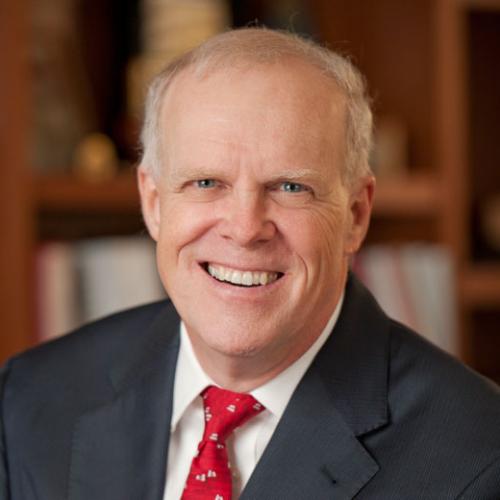
John L. Hennessy
John L. Hennessy is the Chairman of Alphabet Inc., Board Member of Cisco Systems, the former President of Stanford University, a co-founder of MIPS Computer Systems & Atheros, and a recent Turing Award laureate for his pioneering development of RISC architecture, alongside David Patterson. Dr. Hennessy was awarded the IEEE Medal of Honor in 2012 and was appointed a Fellow of the Computer History Museum in 2007, among a multitude of accolades for his leadership in the field of computer science, architecture & engineering.
In 2016, he co-founded the Knight-Hennessy Scholars program, which has a $750 million endowment to fully fund graduate students at Stanford for up to three years.
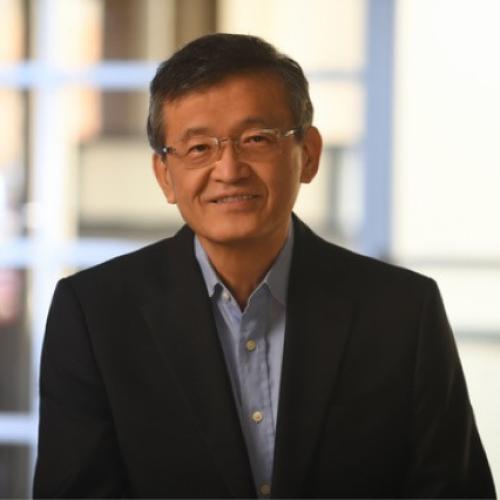
Lip-Bu Tan
Lip-Bu Tan is chief executive officer of Intel Corporation and serves on the company’s board of directors. He was appointed to his position in March 2025.
Tan is an accomplished executive with more than two decades of semiconductor and software experience and deep relationships across the technology ecosystem. He has received several accolades for his significant contributions to the industry, including the 2022 Robert N. Noyce Award, the Semiconductor Industry Association’s highest honor, and was named one of Forbes’ Top 50 Venture Capitalists.
Tan previously served as chief executive officer of Cadence Design Systems Inc. and was also a member of its board of directors. During his 12 years as Cadence’s chief executive officer, he led a reinvention of the company and drove a cultural transformation centered on customer-centric innovation that enabled Cadence to more than double its revenue, expand operating margins and significantly outperform the market.
Tan is a founding managing partner of Walden Catalyst Ventures and chairman of Walden International, a leading venture capital firm. He has also served on the boards of public companies Credo Technology Group and Schneider Electric.
Tan holds a Bachelor of Science in physics from Nanyang Technological University in Singapore, a Master of Science in nuclear engineering from the Massachusetts Institute of Technology and an MBA from the University of San Francisco.
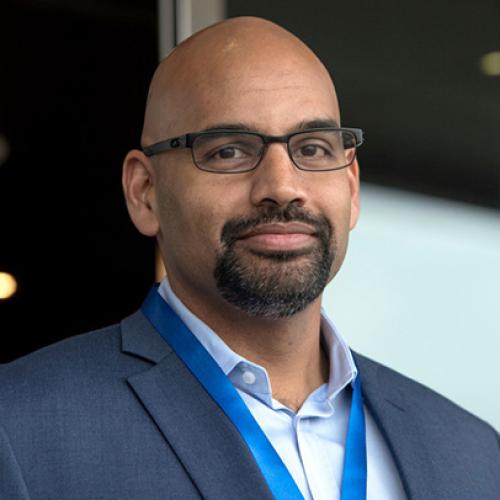
Naveen Rao
Naveen Rao is corporate vice president and general manager of the Artificial Intelligence Products Group at Intel Corporation.
Trained as both a computer architect and neuroscientist, Dr. Rao joined Intel in 2016 with the acquisition of Nervana Systems. As chief executive officer and co-founder of Nervana, he led the company to become a recognized leader in the deep learning field. Before founding Nervana in 2014, Rao was a neuromorphic machines researcher at Qualcomm Inc., where he focused on neural computation and learning in artificial systems. Rao’s earlier career included engineering roles at Kealia Inc., CALY Networks and Sun Microsystems Inc.
Rao earned a bachelor’s degree in electrical engineering and computer science from Duke University, then spent a decade as a computer architect before going on to earn a Ph.D. in computational neuroscience from Brown University
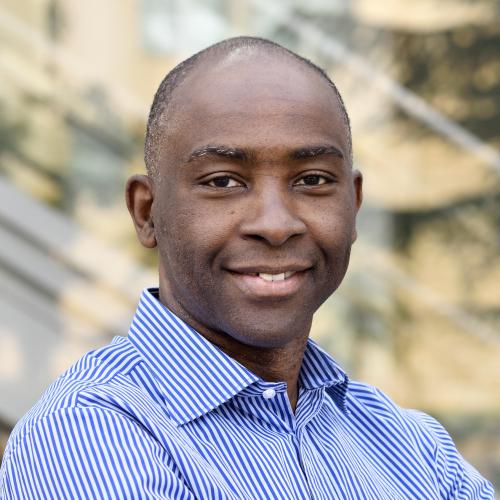
Kunle Olukotun
Kunle Olukotun is Cadence Design Professor of Electrical Engineering and Computer Science at Stanford University. He founded Afara Websystems, acquired by Sun in 2002. He is a Pioneer of Chip Multiprocessor Designs, Director of the Stanford Pervasive Parallelism Lab, and Co-leader of the Data Analytics for What’s Next (DAWN) research program.
In 2017 Olukotun and Chris Ré founded SambaNova Systems. SambaNova Systems has developed a disruptive next-generation computing platform to power machine learning and data analytics.
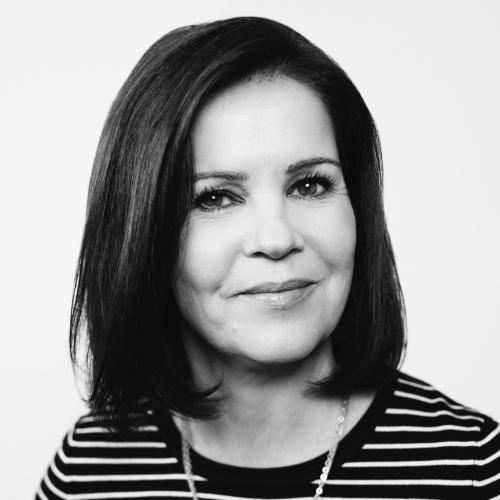
Yvonne Lutsch
Yvonne is an accomplished Investment Principal at Bosch Ventures affiliate office located in Sunnyvale, and sources, evaluates, and executes venture capital deals in North America. Her specialty are investments in deep tech fields such as AI, edge and next gen. computing incl. quantum, robotics, industrial IoT, mobility, climate tech, semiconductors, or sensors. She is an investor and non-executive board member of Bosch Ventures’ portfolio companies Syntiant, Zapata AI, UltraSense Systems, Aclima, and Recogni.
Prior to this position Yvonne was Director of Technology Scouting and Business Development, building up an Innovation Hub in Silicon Valley including startup scouting, business development while advising executives of the Bosch business units on their strategy. She has more than two decades of solid experience in manufacturing operations and engineering in the automotive and consumer electronics space – gained through different executive roles at Bosch in Germany.
Yvonne received a diploma in Experimental Physics from University of Siegen, Germany, and holds a PhD in Applied Physics from University of Tuebingen, Germany.
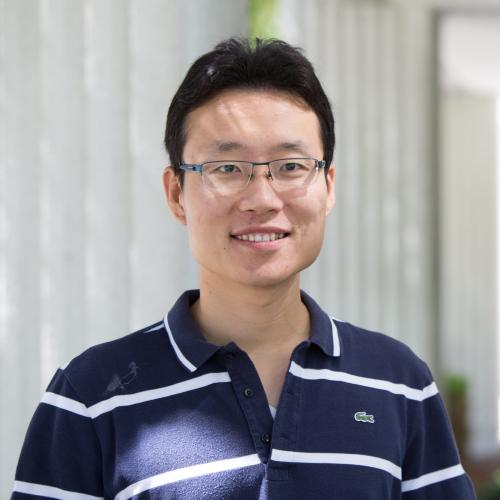
Cheng Wang
Originally from Shanghai, PRC. Cheng has led the architecture, silicon implementation and software development for eFPGA over multiple generations from 180nm-16nm and now AI inferencing development at Flex Logix. Two years as VLSI designer at Zoran. BSEECS, UC Berkeley. MSEE, EE PhD UCLA: designed 5 FPGA chips from 90nm to 40nm. 2013 Distinguished PhD Dissertation Award. 2014 ISSCC Lewis Winner Award for Outstanding Paper. Multiple patents at UCLA and Flex Logix.
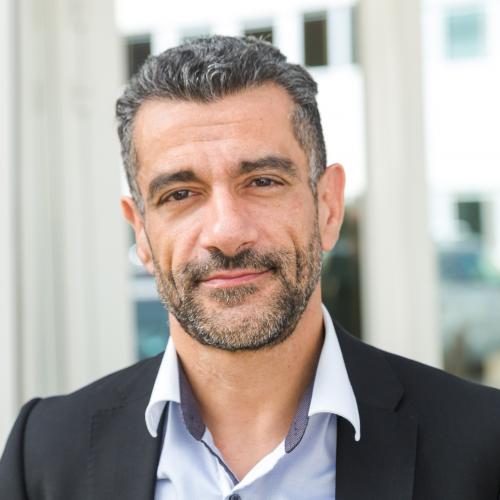
Eric Baissus
Eric spent 8 years at Texas Instruments where he led the development of various chip designs and reference solutions. In 2002, Eric founded and led Open-Plug as CEO and CTO, until its acquisition by Alcatel-Lucent in 2010. OpenPlug was a pioneer and a leader in the area of software framework for mobile phones, having products shipped in millions of devices and Fortune 100 customers such as Sony-Ericsson or Intel. After the acquisition of Open-Plug by Alcatel-Lucent, Eric Baissus became VP R&D and VP Innovation of Alcatel-Lucent Application Enablement and was located at Palo Alto USA. In 2014, Eric returned in Europe and joined Kalray, a French spin-off of CEA research lab, as CEO. In 4 years, he turned Kalray into the pioneer of intelligent processors. As a real technological breakthrough, “intelligent” processors have the capability to analyze on the fly, and in an intelligent manner, a very large amount of information, and make decisions and interact in real-time with the outside world. These intelligent processors will be extensively deployed in fast-growing sectors such as new-generation networks (intelligent data centers) and autonomous vehicles, as well as healthcare equipment, drones and robots. Kalray listed on Euronext Growth in June 2018, and raised around 44 Million Euros, the largest fund raising on Euronext Growth since its inception.
Passionate about new technologies and about turning high-tech innovation into business, Eric Baissus occupies several board positions. He graduated from Ecole Polytechnique (Paris France) and Ecole Nationale Superieure des Telecommunications (Paris France).

Thomas Andersen
Dr. Andersen heads the artificial intelligence and machine learning design group at Synopsys, where he focuses on developing new technologies in the AI and ML space to automate the future of chip design. He has more than 20 years of experience in the semiconductor and EDA industry. Dr. Andersen started his career at IBM’s TJ Watson Research Center in Yorktown Heights, New York, followed by managing synthesis/place-and-route engineering at Magma Design Automation and Synopsys. He holds a Master’s degree from the University of Stuttgart and a Ph.D. in Computer Engineering from the University of Kaiserslautern in Germany.
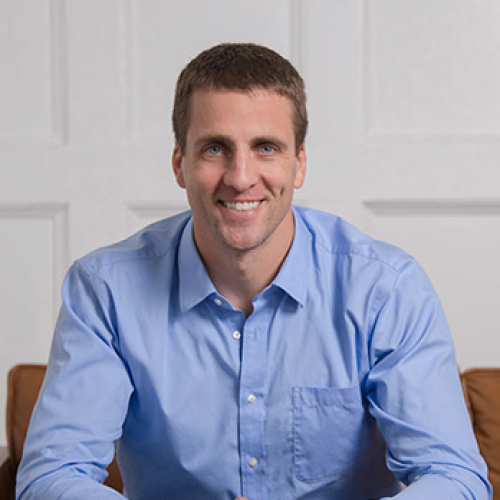
Justin Butler
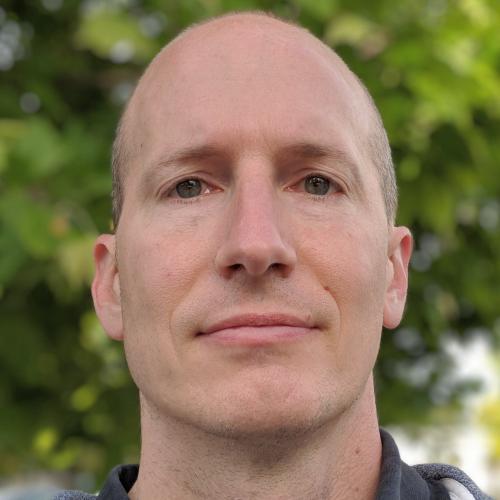
Albert Meixner
Albert Meixner is the Head of Software Infrastructure for Nuro, a Mountain View-based robotics company focused on local goods delivery.
Before joining Nuro he spent a decade working at the intersection of software and hardware in areas spanning GPUs, data center storage, networking, and most recently developing mobile image processing and machine learning accelerators at Google.
Albert earned a Dipl. Ing. in Computer Science from the Paris-Lodron University in Salzburg Austria and a PhD in Computer Science from Duke University.

Andrew Feldman
Andrew Feldman is co-founder and CEO of Cerebras Systems. He is an entrepreneur dedicated to pushing boundaries in the compute space. Prior to Cerebras, he co-founded and was CEO of SeaMicro, a pioneer of energy-efficient, high-bandwidth microservers. SeaMicro was acquired by AMD in 2012 for $357M. Before SeaMicro, Andrew was the Vice President of Product Management, Marketing and BD at Force10 Networks which was later sold to Dell Computing for $800M. Prior to Force10 Networks, Andrew was the Vice President of Marketing and Corporate Development at RiverStone Networks from the company’s inception through IPO in 2001. Andrew holds a BA and an MBA from Stanford University.
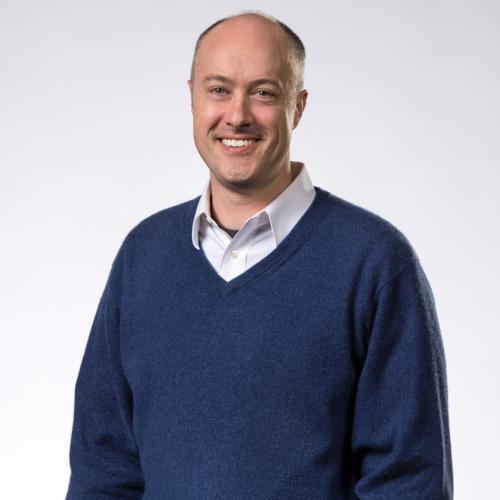
Ian Buck
Ian Buck is vice president of NVIDIA's Accelerated Computing business unit, which includes all hardware and software product lines, third-party enablement, and marketing activities for GPU computing.
Buck joined NVIDIA in 2004 and created CUDA, which remains the established leading platform for accelerated-based parallel computing. Before joining NVIDIA, he was the development lead on Brook, which was the forerunner to generalized computing on GPUs.
Buck holds a Ph.D. in computer science from Stanford University and Bachelor of Science in computer science from Princeton University.
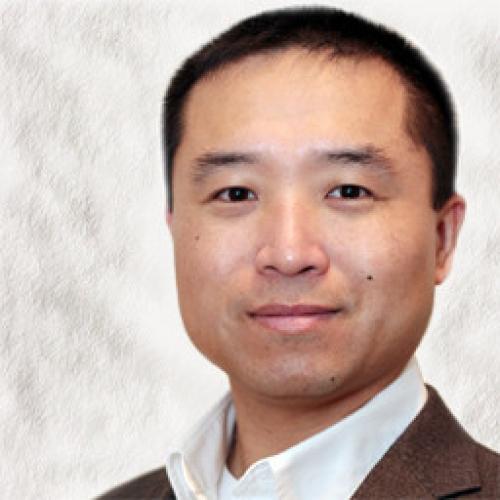
Ching Hu

Cliff Young
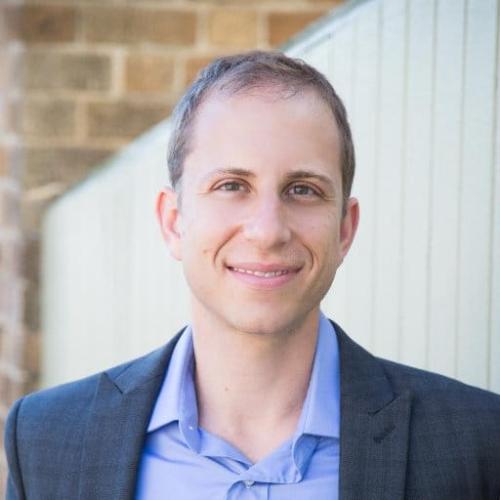
David Kanter
David co-founded and is the Head of MLPerf for MLCommons, the world leader in building benchmarks for AI. MLCommons is an open engineering consortium with a mission to make AI better for everyone through benchmarks and data. The foundation for MLCommons began with the MLPerf benchmarks in 2018, which rapidly scaled as a set of industry metrics to measure machine learning performance and promote transparency of machine learning techniques. In collaboration with its 125+ members, global technology providers, academics, and researchers, MLCommons is focused on collaborative engineering work that builds tools for the entire AI industry through benchmarks and metrics, public datasets, and measurements for AI Safety. Our software projects are generally available under the Apache 2.0 license and our datasets generally use CC-BY 4.0.
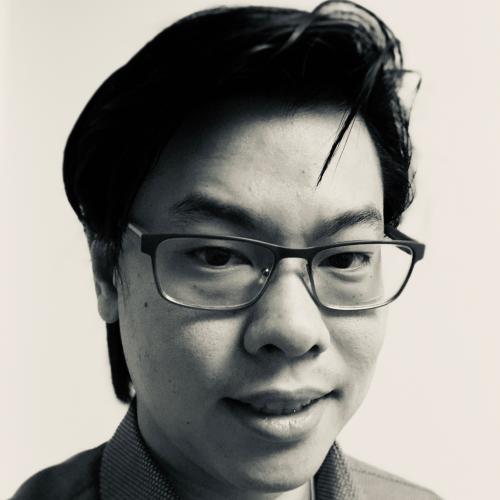
Eric Chung
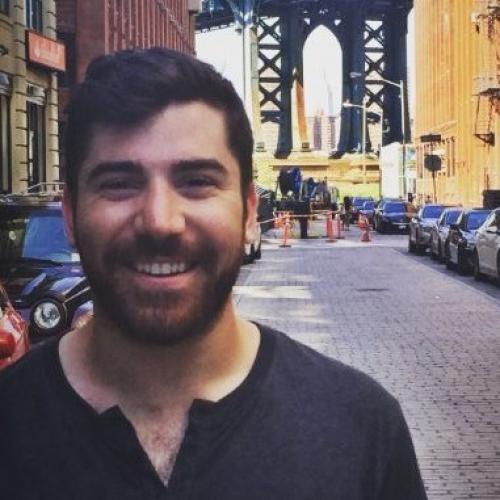
Gordon Hirsch-Wilson
Gordon is a co-founder and the CEO of Rain Neuromorphics, an AI startup developing neuromorphic hardware - physical chips that that can operate faster and with far less power than current implementations of software-based neural networks. Through biologically inspired architectures and algorithms, RAIN Neuromorphics envisions a future where all devices are independently intelligent.

Gregor Stewart
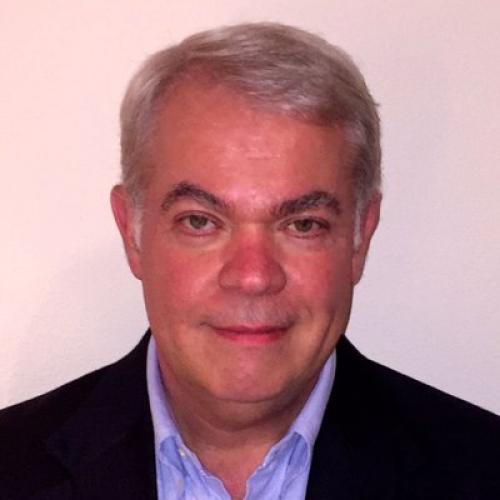
Jimmy Pike
Jimmy D. Pike is a Senior Vice President and Senior Fellow at Dell EMC and serves as a senior system architect and technologist in the office of Dell’s Server and Infrastructure System’s CTO. In addition to his duties as an “at large” technologist, he focuses on high-performance computing, machine learning, and edge computing.
A longtime industry figure with more than 50 patents, Jimmy has served in various executive and technology roles:
• An analyst at the analyst firm of Moor Insights & Strategy
• Chief Architect of Dell’s Enterprise Solutions group and HPC lead technologist
• Chief Architect and Technologist for Dell’s Data Center group.
Jimmy has as also served in various other leadership roles at Intel, AT&T, NCR, and Harris Corporation.
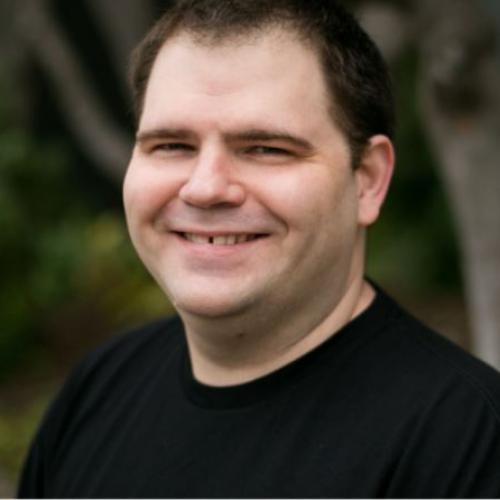
Jonathan Ross
Jonathan Ross is Groq’s technical founder and CEO. Prior to founding Groq he began what became Google’s TPU effort as a 20% project where he designed and implemented the core elements of the original chip. Jonathan next joined Google X’s Rapid Eval Team, the initial stage of the famed “Moonshots factory”, where he devised and incubated new Bets (Units) for Google’s parent company, Alphabet. Jonathan studied mathematics and computer science at NYU’s Courant Institute, and in his second year was the first Computer Science undergraduate to complete courses restricted to PhD students.
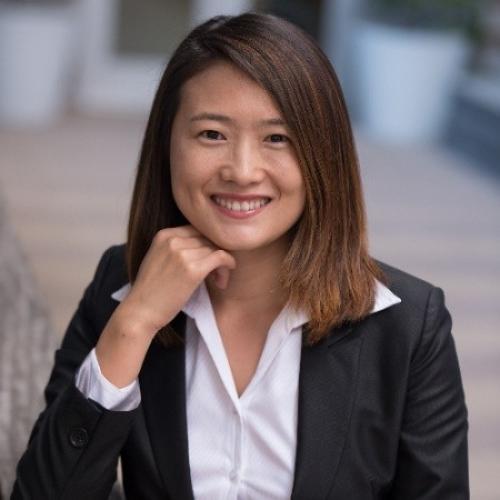
Junli Gu
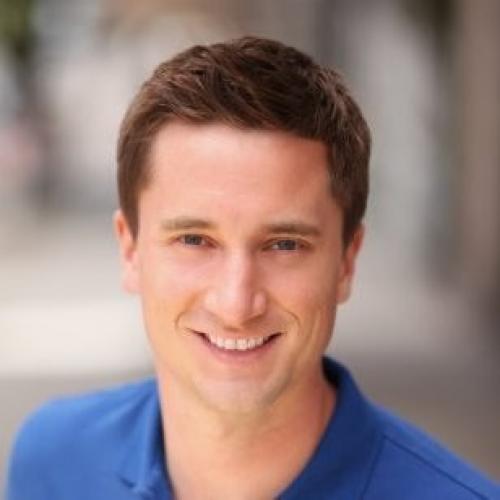
Mike Henry

Prith Banerjee
Prith Banerjee is Senior Vice President of Innovation at Synopsys. Prith leads the Synopsys Innovation Group (SIG) which fosters advancements in EDA, Simulation & Analysis, and IP. Working closely with Fellows, Chief Technologists, Architects, and the Technical Leadership team, SIG shapes the company’s technology strategy and fosters cross-functional collaboration. The group engages with customers, partners, startups, and academia to refine and share Synopsys’ technology vision.
Prior to joining Synopsys, Prith served as Chief Technology Officer at Ansys, where he was responsible for guiding the company’s long-term technology vision. He has held multiple senior leadership roles across technology and industrial organizations, including Executive Vice President and Chief Technology Officer at Schneider Electric, Chief Technology Officer and Executive Vice President at ABB in Zurich,and Managing Director of Global Technology R&D at Accenture. He also served as Senior Vice President of Research and Director of HP Labs at Hewlett-Packard, where he oversaw global innovation efforts.
Earlier in his career, Prith was a leader in academia, serving as Dean of the College of Engineering at the University of Illinois at Chicago and as Chairman of the Electrical and Computer Engineering Department at Northwestern University. He began his academic career as a professor at the University of Illinois at Urbana-Champaign.
A serial entrepreneur, Prith founded AccelChip, an EDA software company acquired by Xilinx, and BINACHIP, where he served as Founder, Chairman, and Chief Scientist. His research interests span electronic design automation and parallel computing, and he is the author of over 350 technical papers and has supervised 37 Ph.D. students.
Prith has been widely recognized for his contributions to technology and innovation. He was named one of Fast Company’s Top 100 Business Leaders in 2009 and is a Fellow of AAAS, ACM, IEEE and National Academy of Inventors. He is also a recipient of the ASEE Terman Award and the NSF Presidential Young Investigator Award.
He earned his B.Tech. in Electronics Engineering from the Indian Institute of Technology, Kharagpur, where he was awarded the President’s Gold Medal. He holds an M.S. and Ph.D. in Electrical Engineering from the University of Illinois at Urbana-Champaign.
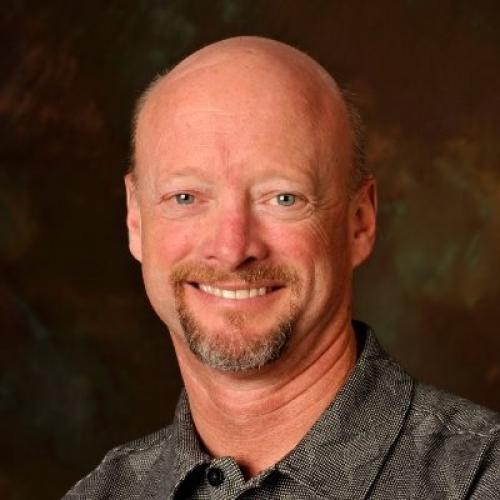
Karl Freund
Karl Freund is the founder and principal analyst of Cambrian AI Research. Prior to this, he was Moor Insights & Strategy’s consulting lead for HPC and Deep Learning. His recent experiences as the VP of Marketing at AMD and Calxeda, as well as his previous positions at Cray and IBM, positions him as a leading industry expert in these rapidly evolving industries. Karl works with investment and technology customers to help them understand the emerging Deep Learning opportunity in data centers, from competitive landscape to ecosystem to strategy.
Karl has worked directly with datacenter end users, OEMs, ODMs and the industry ecosystem, enabling him to help his clients define the appropriate business, product, and go-to-market strategies. He is also recognized expert on the subject of low-power servers and the emergence of ARM in the datacenter and has been a featured speaker at scores of investment and industry conferences on this topic.
Accomplishments during his career include:
- Led the revived HPC initiative at AMD, targeting APUs at deep learning and other HPC workloads
- Created an industry-wide thought leadership position for Calxeda in the ARM Server market
- Helped forge the early relationship between HP and Calxeda leading to the surprise announcement of HP Moonshot with Calxeda in 2011
- Built the IBM Power Server brand from 14% market share to over 50% share
- Integrated the Tivoli brand into the IBM company’s branding and marketing organization
- Co-Led the integration of HP and Apollo Marketing after the Boston-based desktop company’s acquisition
Karl’s background includes RISC and Mainframe servers, as well as HPC (Supercomputing). He has extensive experience as a global marketing executive at IBM where he was VP Marketing (2000-2010), Cray where he was VP Marketing (1995-1998), and HP where he was a Division Marketing Manager (1979-1995).
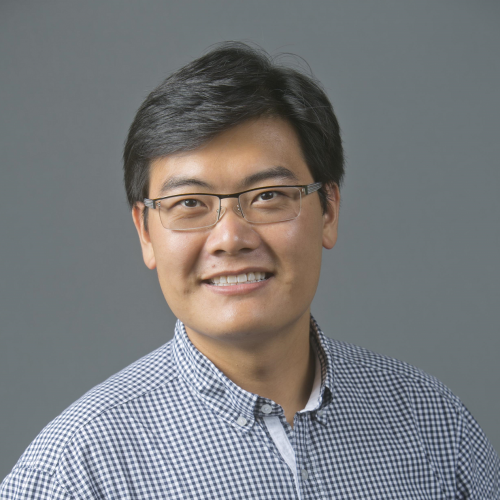
Lingjie Xu
Lingjie Xu is a director of Alibaba Cloud and he is in charge of heterogeneous computing infrastructure, including GPUs and AI ASICs. His team is currently focusing on applied AI architecture and SW/HW interplay. On September 2018, he launched AI Matrix benchmark suite for deep learning. Before joining Alibaba, he held various senior management and architect roles in NVIDIA, AMD and Samsung.
Michael Stewart
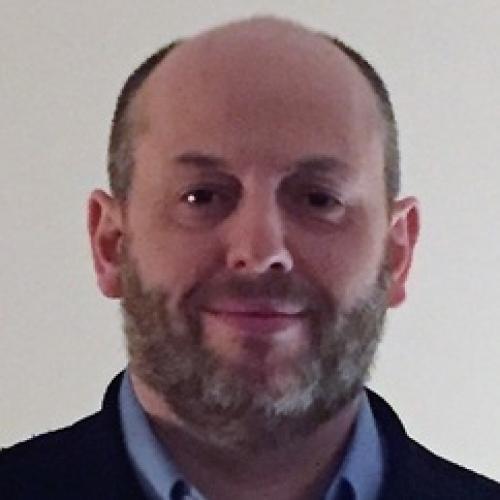
Misha Smelyanskiy
Misha Smelyanskiy is a Director of AI System Co-Design Group at Facebook. The group delivers innovative, high-performance optimizations of key AI services on existing platforms, as well as co-designs future AI systems at datacenter scale. Before joining Facebook in early 2017, Misha spent 13 years at Intel. First at Intel Parallel Computing Labs, leading application-driven parallel architecture research, which resulted in significant contribution to the definition of Intel first Many-Integrated Core architecture. And later as the director of Exascale SW/HW co-design group, working with external HPC and Machine Learning customers to derive system-level hardware. Misha has published 50+ papers in top-tier architecture, supercomputing and ML conferences and journals. Misha won Green500 competition in 2012, developed world fastest distributed quantum system simulator in 2016, and was 2014 Gordon Bell Award Finalist.
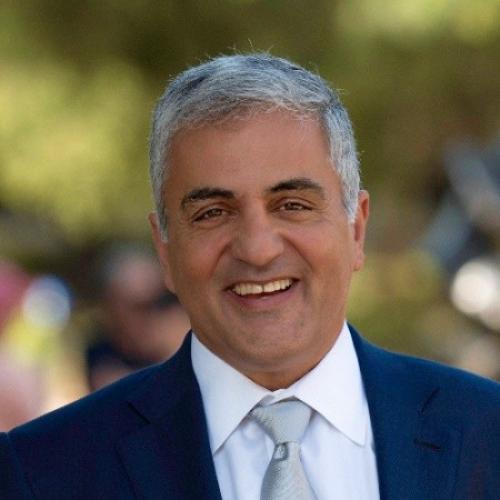
Patrick Soheili
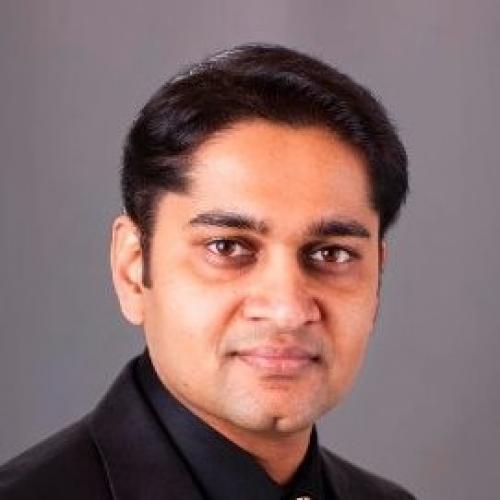
Samar Dalal
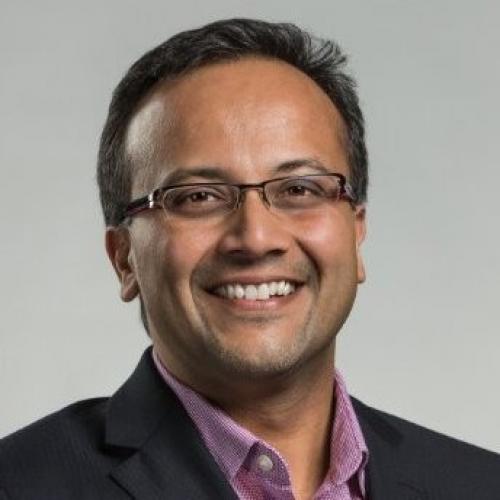
Sumit Gupta
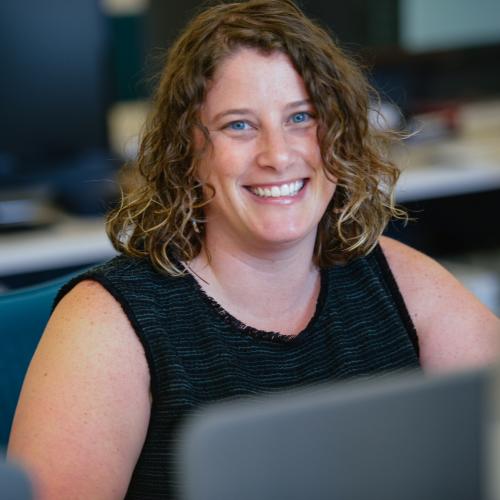
Victoria Rege
Victoria has over a decade of experience in the semiconductor space. She currently heads up Strategic Partnerships at Graphcore, working with key customers and leading Research & Universities AI engagements. Previously she held several leadership positions at NVIDIA from global alliances, product marketing and campaigns to the founding of the GPU Technology Conference. Prior to joining NVIDIA, Victoria worked in the hedge fund space, as Executive Director for the Hedge Fund Business Operations Association. Victoria is a frequent contributor to ACM SIGGRAPH and is Immersive Chair for the SIGGRAPH 2019 Conference. She's also an active member of the Consumer Technology Association's AI Working Group.

Yichen Shen
Yichen Shen is a co-founder and CEO of Lightelligence. He received his PhD degree in Physics from MIT in 2016, where his research focused on nanophotonics and artificial intelligence. Through his PhD, Yichen has published more than 25 peer-reviewed journal papers and has filed 10 US patents, including first authored papers in Science, Nature Photonics, and ICML (the top machine learning conference). In 2017, Yichen received Forbes 30 under 30 Global and MIT Technology Review 35 Innovators under 35 (TR35) China.
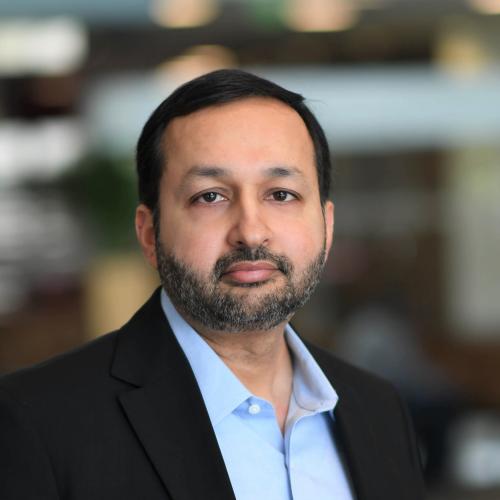
Ziad Asghar
Ziad Asghar is Vice President, Product Management at Qualcomm Technologies, Inc (QTI). He leads Snapdragon roadmap planning and Application processor technologies, covering all QC product lines. Ziad drives the definition of the products ensuring that our products lead in technology and enable best in class user experiences while making tradeoffs between features, power, performance and cost. He also leads Application Processor technologies including Artificial Intelligence, Camera, Graphics, CPU, Audio, Video and Security. He also has responsibility for Competitive Analysis. Ziad works across all teams including engineering and product management to ensure that we have the leading roadmap in the industry and continue to set the standard on all application processor technologies. He works across all business units including Mobile, Automotive, Compute, XR, Edge Cloud and IoT.
He has more than 20 years of experience in the wireless semiconductor industry where he has held a broad set of leadership positions from R&D to product management. Prior to joining Qualcomm, Ziad was at Texas Instruments where he worked on systems design of UMTS & LTE and OMAP Product Management.
Ziad holds an MBA from UCSD and master’s degrees in electrical engineering from Purdue University and Southern Methodist University.

Steven Woo
I was drawn to Rambus to focus on cutting edge computing technologies. Throughout my 15+ year career, I’ve helped invent, create and develop means of driving and extending performance in both hardware and software solutions. At Rambus, we are solving challenges that are completely new to the industry and occur as a response to deployments that are highly sophisticated and advanced.
As an inventor, I find myself approaching a challenge like a room filled with 100,000 pieces of a puzzle where it is my job to figure out how they all go together – without knowing what it is supposed to look like in the end. For me, the job of finishing the puzzle is as enjoyable as the actual process of coming up with a new, innovative solution.
For example, RDRAM®, our first mainstream memory architecture, implemented in hundreds of millions of consumer, computing and networking products from leading electronics companies including Cisco, Dell, Hitachi, HP, Intel, etc. We did a lot of novel things that required inventiveness – we pushed the envelope and created state of the art performance without making actual changes to the infrastructure.
I’m excited about the new opportunities as computing is becoming more and more pervasive in our everyday lives. With a world full of data, my job and my fellow inventors’ job will be to stay curious, maintain an inquisitive approach and create solutions that are technologically superior and that seamlessly intertwine with our daily lives.
After an inspiring work day at Rambus, I enjoy spending time with my family, being outdoors, swimming, and reading.
Education
- Ph.D., Electrical Engineering, Stanford University
- M.S. Electrical Engineering, Stanford University
- Master of Engineering, Harvey Mudd College
- B.S. Engineering, Harvey Mudd College
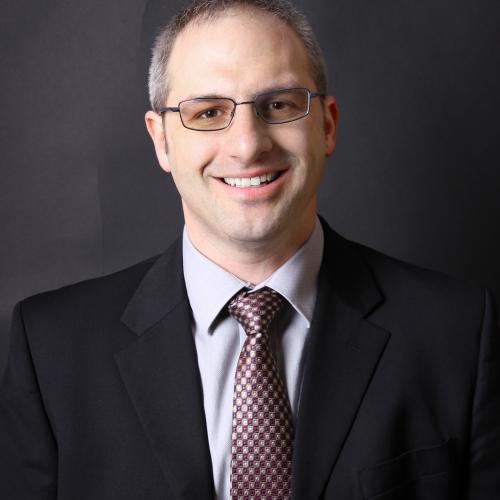
Bryan Bowyer
Bryan Bowyer leads the HLS Product Design team in the Digital Design & Implementation Solutions' Division of Mentor, A Siemens Company. Bryan has created a wide range of hardware using HLS, from FFTs to AXI Interfaces in C++ and SystemC, and has worked on HLS tools for the past 20 years. Bryan received his B.S. in Computer Engineering from Oregon State University
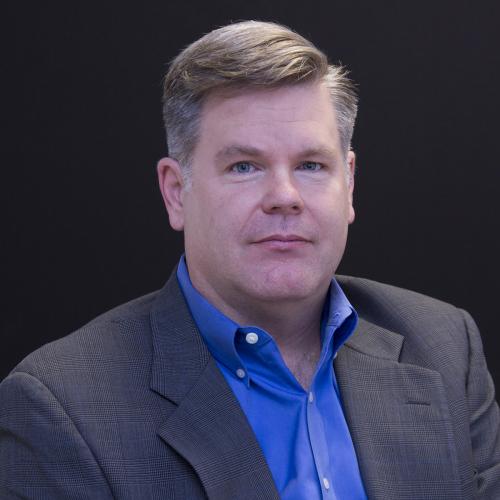
Robert Gendron
Mr. Gendron is the Corporate Vice President for Product Marketing & Business Development at Vicor Corporation. Vicor is focused on delivering 48V high density/high efficiency power module products within datacenter, industrial, LED lighting, and automotive applications. Prior to joining Vicor, Mr. Gendron has held senior marketing and sales roles at various semiconductor companies including Analog Devices, STMicroelectronics, Fairchild Semiconductor, International Rectifier, and Volterra. Mr. Gendron also serves on the Industrial Advisory Board for the University of New Hampshire Department of Electrical and Computer Engineering. Mr. Gendron holds a B.S. in Electrical Engineering from Clarkson University, a M.S. in Electrical Engineering from Northeastern University, a M.B.A. from the Whittemore School of Business at the University of New Hampshire, and is a registered Professional Engineer by the Commonwealth of Massachusetts.
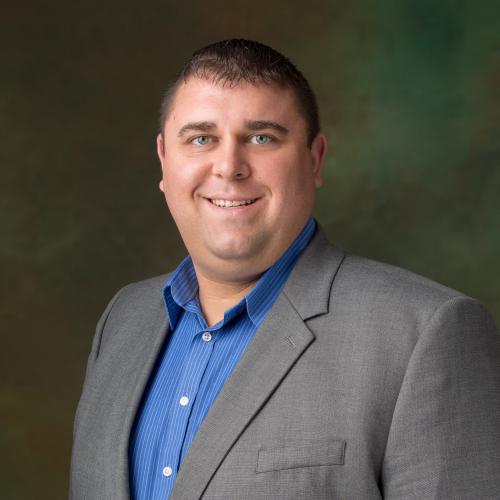
Justin Potuznik
Justin Potuznik is a Senior Principal Engineer and Architecture lead with Optum Technology. Justin has been with Optum/UHG for 9 years. He is one of the founders of the Optum Technology Center. Justin is generally regarded as a thought leader and strategic visionary in the areas of focus he maintains: GPU/DL, hyper-converged computing, Big Data & Analytics, Genomics/HPC infrastructure and containerized infrastructure.

Eitan Medina
Prior to Habana, Eitan Medina was the VP and GM of the Fingerprint Business Unit at TDK-InvenSense. Prior to the TDK acquisition he was VP of Marketing at InvenSense and VP of Engineering at Audience Inc. (acquired by Knowles).

Ingolf Held
Mr. Ingolf Held has been Chief Executive Officer of GrAI Matter Labs (GML) since January 2018. Prior to GML, he was responsible for technology strategy and product marketing of imaging and computer vision at Intel. He holds an MScEE from Erlangen University and an MBA from Rotterdam School of Management.
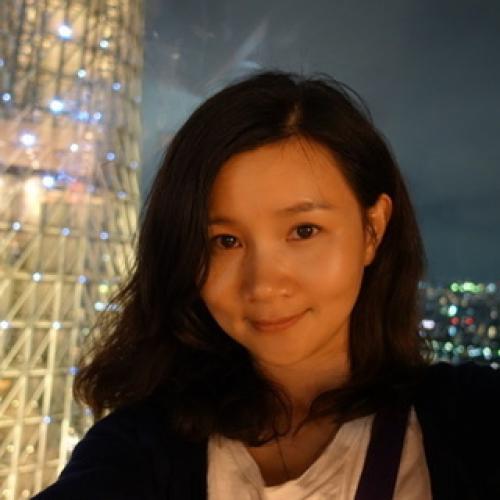
Whitney Zhao
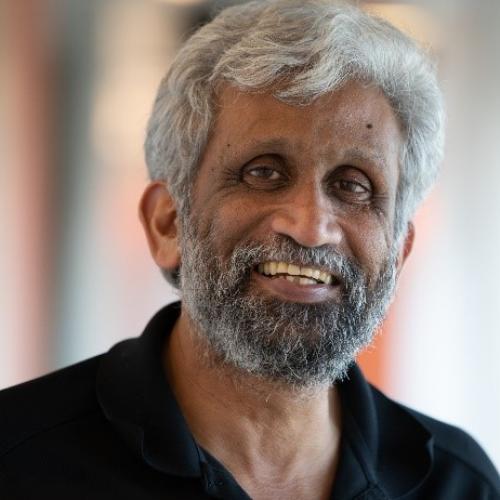
Chandu Thekkath
Chandu Thekkath is a Distinguished Engineer at Microsoft.
Thekkath began his career at Microsoft in 2001 as a Senior Researcher at Microsoft Research Silicon Valley, where he did research in multiple areas: mobile devices, distributed data intensive computing, and large-scale storage systems. He also worked with the Hotmail team as chief architect for the Blue project. Blue went into production use within MSN in mid-2006 and was an early example within Microsoft of a large scale distributed storage system that provided strict read/write guarantees in the presence of disk, machine, and network failures.
In his 15-year career at Microsoft Research, Thekkath has worked both as an individual contributor as well as a manager of research groups, on multiple occasions. Most recently, he worked as the Managing Director of the MSR India Lab in Bangalore from Aug 2014 to Aug 2016.
Since April 2017, he has been working as the Group Engineering Manager for the AI Infrastructure and Tools group.
Prior to Microsoft, Thekkath worked at the DEC/Compaq Systems Research Center, where he held the positions of Principal Engineer, Consulting Engineer, and Manager (Distributed Systems). At DEC, Thekkath’s most influential work was the Petal/Frangipani project. It was completed (and made public) in 1997 and influenced the design of Compaq’s VersaStore products and predates many of the storage and NAS appliances in the industry today. Thekkath was also a principal in the XOM project, which was started when he was on a sabbatical at Stanford in 2000. XOM has many of the same ideas as the current-day Intel SGX.
Thekkath worked as a software development engineer at Monolithic Memories Inc. (now part of AMD) and Hewlett Packard between 1983 and 1988.
Thekkath received a BTech. in EE (Electronics) from IIT Madras in 1982, where he was awarded the Governor’s Prize, an M.S. in EE from UC Santa Barbara in 1983, an M.S. in Computer Science from Stanford in 1989, and a Ph.D. in Computer Science from the University of Washington in 1994. He is a fellow of the ACM and has published a number of influential papers in the premier conferences in the field and holds about 30 patents in operating systems, networks, distributed systems, and computer architecture.
His publications can be found at his personal home page.
Thekkath is a certified flight and ground instructor. His cunning plan is to earn his living as an instructor in case the computer phenomenon turns out to be a passing fad.
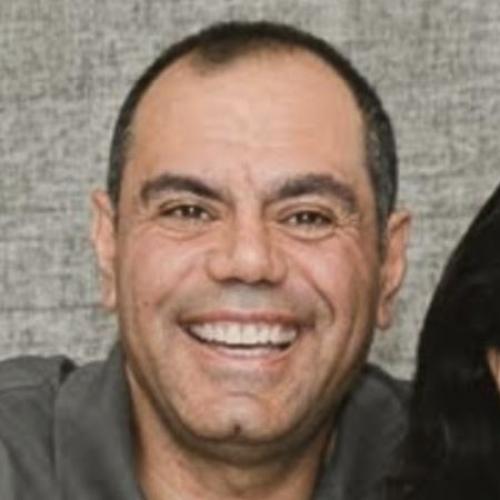
Moe Tanabian
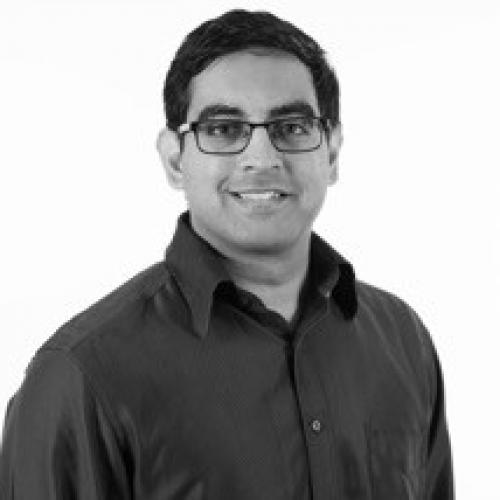
Hari Kannan
Hari Kannan is a technical director of engineering at Pure Storage, and hardware architect for FlashBlade, Pure’s scale-out, all-flash file and object storage platform. Hari received a PhD from Stanford University, focusing on computer architecture.
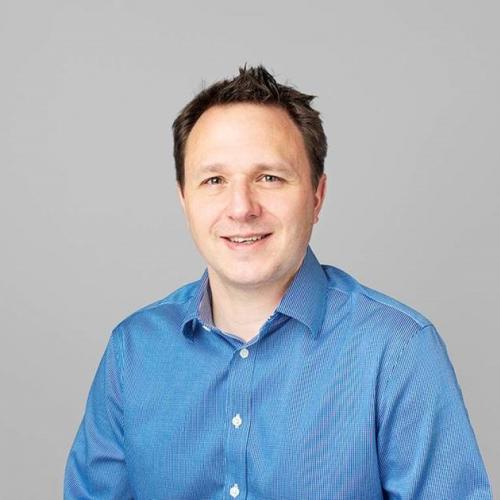
Paul Brasnett
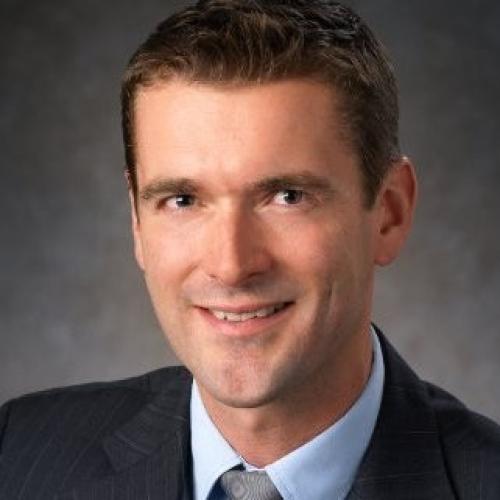
Sylvain DuBois
Sylvain Dubois joined the Crossbar management team in 2013 as Vice President of Strategic Marketing and Business Development. With over 17 years of semiconductor experience in business development and strategic product marketing, he brings a proven ability to analyze market trends, identify new, profitable business opportunities and create precise product positioning that is in perfect sync with market demands to drive market share leadership and business results.
Prior to joining Crossbar, Mr. Dubois led strategic product positioning and market engagement for developing new products at Spansion. Responsible for identifying new growth opportunities and expanding the product portfolio, Mr. Dubois was instrumental in defining the Spansion Flash memory product roadmap.
From 2002-2006, Mr. Dubois was a System-on-Chip architect of OMAP application processors at Texas Instruments. Mr. Dubois was in charge of the architecture and technology roadmap of DRAM and Flash memory controllers, and developed strategic relationships with major DRAM and Flash memory suppliers.
Sylvain Dubois holds a Master of Science in Microelectronics from E.S.I.E.E. (Paris), University of Southampton (UK) and Universidad Pontifica Comillas (Spain).
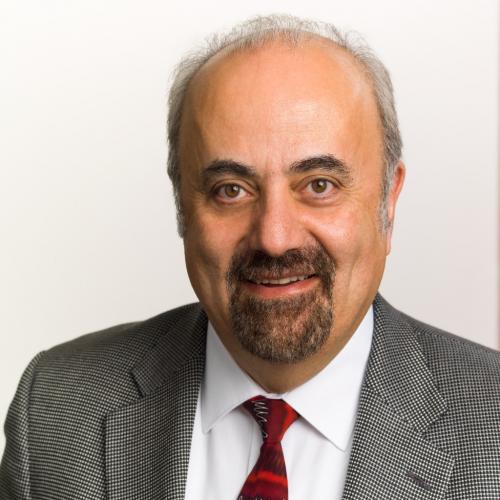
George Minassian
Dr. George Minassian has been a co-founder and CEO of Crossbar since 2010. A seasoned veteran of the semiconductor memory industry, Dr. Minassian brings Crossbar 25 years of experience in systems, logic design, new business development, and product development. Over his extensive career, Dr. Minassian has a proven track record of developing commercially successful, leading-edge products.
From 2002 to 2010, Dr. Minassian held a variety of positions at Spansion, a leading innovator of Flash memory solutions, most recently as vice president of System and Software Engineering where he led the $1.2 billion Flash Memory business targeting the cellular wireless market segment. While at Spansion, he developed and established new industry standards in emerging technologies such as PISMO and achieved a successful track record for large-scale product development and management. From 1999-2002, Dr. Minassian was director of Wireless Engineering at Advanced Micro Devices, a microprocessor leader, where he developed the industry’s first CMOS RF process and complete 802.11b/a chipset and reference designs. Dr. Minassian holds a Ph.D. in Electrical Engineering and Computer Science from the University of Texas at Austin.
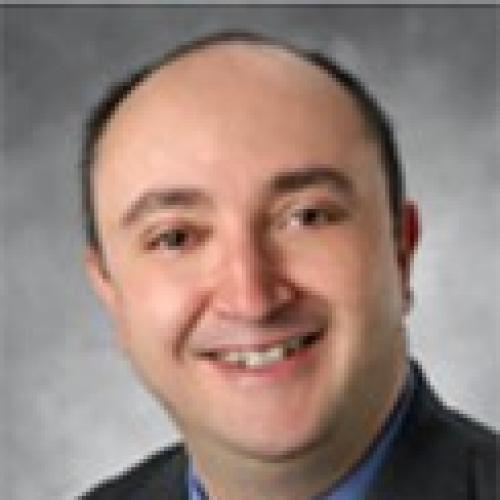
Yankin Tanurhan
Dr. Yankin Tanurhan is Vice President of Engineering for DesignWare Processor Cores, IP Subsystems and Non-Volatile Memory, Security and SoC Design at Synopsys. He leads the low power and high performance ARC and EV embedded Processor developments targeted from Mobile, IoT, Embedded Vision, Digital Home, Automotive/Industrial, Security to Storage markets, ASIP tool development with products like ASIP Designer and Programmer, IP Subsystems products like Sensor Fusion, Audio, Vision and Security Subsystems and CMOS based Non Volatile IP development. Before joining Synopsys, Dr. Tanurhan was Vice President and General Manager of Virage Logic's Processors, SoC Infrastructure and NVM Solutions business units. Virage Logic was acquired by Synopsys in September 2010. Prior to this, Dr. Tanurhan served as Vice President of Actel's Advanced Applications and System Solutions, where he lead Actel's new architecture design, IP and MPU business units, system and hardware tools and product validation departments. He was also responsible for leading Actel's embedded FPGA, embedded processor and DSP activities.
Previously in his research career he served as the director of the department of electronic systems and microsystems of FZI (Forschungszentrum Informatik) a German contract research institute attached to the University of Karlsruhe. Dr. Tanurhan has authored more than 100 papers in refereed publications. He holds a B.S. and M.S. in Electrical and Computer Engineering from Rheinisch Westfaellische Technische Hochschule (RWTH) in Aachen, Germany and a Dr. Ing. degree summa cum laude in Electrical Engineering from the University of Karlsruhe (TH) in Karlsruhe, Germany.
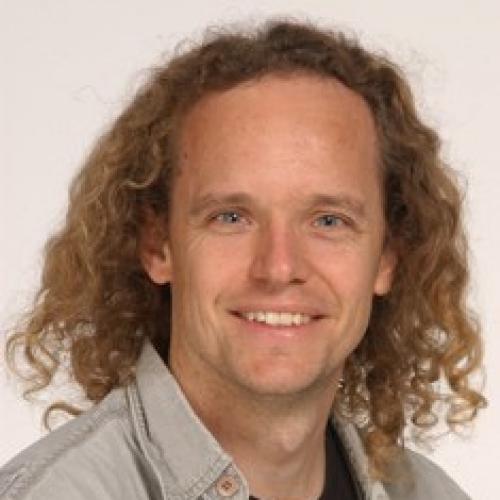
Chris Eliasmith
Chris is the co-inventor of the Neural Engineering Framework (NEF), the Neural Engineering Objects (Nengo) software environment, and the Semantic Pointer Architecture (SPA), all of which are dedicated to understanding how the brain works. His team has developed the Semantic Pointer Architecture Unified Network (Spaun) which is the most realistic functional brain simulation yet developed. He won the prestigious 2015 NSERC Polanyi Award for his research.
Chris is the Canada Research Chair in Theoretical Neuroscience. At the University of Waterloo, Chris is jointly appointed in the Philosophy and Systems Design Engineering departments, as well as being cross-appointed to the Computer Science department. Chris has supervised students in each of these departments as well as in Biology and Psychology. Chris is the director of the Centre for Theoretical Neuroscience (CTN) at the University of Waterloo. The Centre brings together researchers across many faculties as diverse as math, engineering, arts and science who are interested in computational and theoretical models of neural systems.
The Computational Neuroscience Research Group (CNRG) is Chris’ research lab which is associated with the CTN. The CNRG site contains the most up-to-date information on Chris’ team’s research. Chris has published two books: How to Build a Brain (Oxford University Press) and his seminal Neural Engineering.
When he is not pushing the boundaries of theoretical neuroscience forward or hanging out with his team at the CNRG, Chris spends time with his family and occasionally straps on the blades for a game of hockey near his home in Waterloo. He has a Bacon-Erdos number of 8.
AUDIENCE BREAKDOWN
Past attendees include:
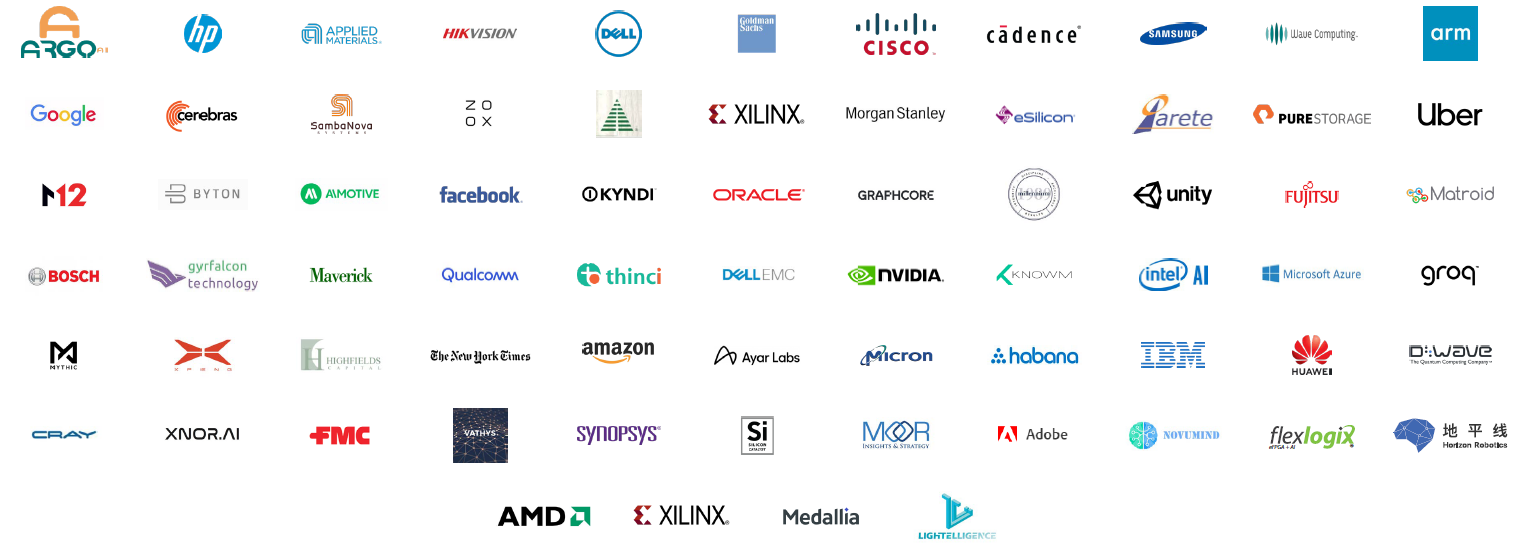
What's different to 2018?
- 4 hours extra networking time.
- Improved representation from AI hardware value chain.
- Whole second floor of Computer History Museum.
- All presentations to be made available to registered attendees on day 1 of the conference.
- 15+ extra speakers.
- 10+ extra partners.
- Deep dive workshop sessions.
- Improved on-site experience (branding, catering, networking).
Platinum Partner
Synopsys
Website: www.synopsys.com
Smart, Secure Everything—From Silicon to Software
Synopsys technology is at the heart of innovations that are changing the way we live and work. The Internet of Things. Autonomous cars. Wearables. Smart medical devices. Secure financial services. Machine learning and computer vision. These breakthroughs are ushering in the era of Smart, Secure Everything―where devices are getting smarter, everything’s connected, and everything must be secure.
Powering this new era of technology are advanced silicon chips, which are made even smarter by the remarkable software that drives them. Synopsys is at the forefront of Smart, Secure Everything with the world’s most advanced tools for silicon chip design, verification, IP integration, and application security testing. Our technology helps customers innovate from Silicon to Software, so they can deliver Smart, Secure Everything.
SambaNova
Website: www.sambanovasystems.com
We are a computing startup focused on building the industry’s most advanced systems platform to run AI applications from the datacenter to the edge.
Flex Logix
Website: www.flex-logix.com
Flex Logix’ NMAX inferencing accelerators provide very high throughput and hardware utilization even at batch size = 1, with low system cost and system power.
NMAX MAC utilization is over 50% even at batch size = 1. For most inferencing engines utilization drops dramatically from batch 10 to batch 1 because they stall loading weights. High MAC utilization means less silicon area needed for the same throughput.
NMAX uses proprietary Flex Logix interconnect technology to utilize local, distributed SRAM very efficiently generating very high local bandwidth and dropping DRAM bandwidth requires to that of 1 or 2 LPDDR4 DRAMs, even for YOLOv3 at 30 frames/second. This lowers power and lowers cost.
NMAX will be available in TSMC16FFC/12FFC in mid 2019.
Groq
Website: groq.com
We’re passionate about speed and simplicity.
We’re committed to increasing developer velocity in machine learning. We’ve taken a compiler-led design approach, enabling our customers to easily and quickly deploy scalable, deterministic, high performance-per-watt systems. In a world that is increasingly driven by machine learning, our vision is to lead the way with simple, fast, innovative solutions.
Gold Partner
Qualcomm
Website: www.qualcomm.com
Qualcomm relentlessly innovates to deliver intelligent computing everywhere, helping the world tackle some of its most important challenges. Their leading-edge AI, high performance, low-power computing, and unrivaled connectivity deliver proven solutions that transform major industries. At Qualcomm, the team are engineering human progress.
ANSYS
Website: www.ansys.com
If you’ve ever seen a rocket launch, flown on an airplane, driven a car, used a computer, touched a mobile device, crossed a bridge, or put on wearable technology, chances are you’ve used a product where ANSYS software played a critical role in its creation. ANSYS is the global leader in engineering simulation. We help the world’s most innovative companies deliver radically better products to their customers. By offering the best and broadest portfolio of engineering simulation software, we help them solve the most complex design challenges and engineer products limited only by imagination.
Vicor
Website: www.vicorpower.com
Vicor is an innovator in modular power products that enable 48V distribution architectures and achieve the highest density and efficient power designs, critical for advanced artificial intelligence processors. Vicor has established a new category of processor power designs with its Power-on-Package solutions based on Factorized Power Architecture and SM-ChiP packaging design. These solutions are maximizing processor performance by delivering high currents at sub 1V levels and eliminating traditional board losses.
Rambus
Website: www.rambus.com
Rambus is a provider of industry-leading chips and silicon IP making data faster and safer. With 35 years of advanced semiconductor experience, we are a pioneer in high-performance memory subsystems that solve the bottleneck between memory and processing for data-intensive systems. Whether in the cloud, at the edge or in your hand, real-time and immersive applications depend on data throughput and integrity. Rambus products and innovations deliver the increased bandwidth, capacity and security required to meet the world's data needs. For more information, visit rambus.com.
Kalray
Website: www.kalrayinc.com
Kalray (Euronext Growth Paris — FR0010722819 — ALKAL) is the pioneer in processors for new intelligent systems. As a real technological breakthrough, “intelligent” processors have the capability to analyze on the fly, and in an intelligent manner, a very large amount of information, and to make decisions and interact in real time with the outside world.
These intelligent processors will be deployed extensively in fast‐growing sectors, such as newgeneration networks (intelligent data centers) and autonomous vehicles, as well as healthcare equipment, drones, and robots. Kalray’s offering encompasses both processors and complete solutions (electronic boards and software).
Created in 2008 as a spin‐off of CEA (“Commissariat à l'énergie atomique et aux énergies alternatives”, the French Alternative Energies and Atomic Energy Commission), Kalray serves customers such as server manufacturers, intelligent system integrators, and consumer product manufacturers, including car makers.
Habana
Website: habana.ai
Habana is an AI solutions semiconductor company. Eitan is Habana’s Chief Business Officer and will share with us Habana’s vision of the AI/Deep-learning processing needs and Habana’s solutions.
Mentor, A Siemens Business
Website: www.mentor.com
We enable companies to develop better electronic products faster and more cost-effectively. Our innovative products and solutions help engineers conquer design challenges in the increasingly complex worlds of board and chip design.
Microsoft
Website: www.microsoft.com/en-gb
Founded in 1975, Microsoft creates platforms and tools powered by AI to deliver innovative solutions that meet the evolving needs of customers around the world. The technology company is committed to making AI available broadly and doing so responsibly, with a mission to empower every person and every organization on the planet to achieve more. In 2025, Microsoft commemorates its 50-year anniversary by celebrating the achievements of employees, customers, and partners that have dreamt, built, and used Microsoft technology as a force for good, while also looking ahead to the future. Over the past five decades, Microsoft has driven innovation that has transformed the way society uses technology both at work and at home, from revolutionizing personal computing with MS-DOS and Windows, bringing the joy and community of gaming to everyone on the planet with Xbox, to driving the future of cloud computing with Azure, and AI transformation with Copilot and AI platform. Learn more at www.microsoft.com and follow us on LinkedIn.
GrAI Matter Labs
Website: www.graimatterlabs.ai
At GrAI Matter Labs we are in the business of Life-Ready AI. Artificial Intelligence as close to natural as it gets. AI that feels alive. We deliver brain-inspired chips that behave like humans do. AI that makes machines assisting humans act, and react, in real time. AI that optimizes energy and maximizes efficiency, saving time, money, and vital natural resources. Welcome to an AI-Ready future, where smart speakers, autonomous vehicles, robots, drones, augmented reality devices, surveillance cameras and more, make us more productive. Welcome to an optimized future!
Crossbar
Website: www.crossbar-inc.com
Crossbar was founded in 2010 to commercialize a radically different approach to non-volatile memory called ReRAM. Crossbar is the leader in filamentary-based ReRAM technology, enabling kilobytes to terabytes of always-on data storage to be embedded into any processor, microcontroller, FPGA or as a standalone memory chip.
Today, even the most advanced architectures are suffering limitations caused by the memory bottleneck between computing cores and data, Crossbar ReRAM lets designers rethink the compute/storage paradigm, free from the constraints of traditional embedded memory technologies or external flash and DRAM memories.
Solving the restrictions of traditional AI Neural Network methodologies that depend on inefficient memory data accesses, Crossbar innovates with the implementation of non-volatile ReRAM technology integrated with processing logic to quickly analyze and respond to unstructured data (including video, images, speech, keywords and sensor feeds).
From high-density “persistent memory” that brings data closer to CPU to “cognitive memory” that enables near-memory and in-memory computing without a host CPU, ReRAM is ushering in new era of data storage and processing for both edge and cloud computing.
Imagination Technologies
Website: www.imaginationtech.com
Imagination have over 25 years of experience in designing and licensing market-leading processor solutions for graphics and vision & AI processing that offer strong differentiation compared to competing solutions for their customers.
Imagination is chosen as a partner by many leading innovators in electronics because we are passionate about innovation and have the drive to deliver technologies that solve key problems in new, more efficient ways.
They partner with leaders in automotive, drone and mobile smart vision applications.
Headline Media Partner
HPCwire
Website: www.hpcwire.com
HPCwire is the #1 news and information resource covering the fastest computers in the world and the people who run them. With a legacy dating back to 1987, HPC has enjoyed more than three decades of world-class editorial and topnotch journalism, making it the portal of choice selected by science, technology and business professionals interested in HPC, AI and data-intensive computing. For topics ranging from late-breaking news and emerging technologies in HPC, to new trends, expert analysis, and exclusive features, HPCwire delivers it all and remains the HPC community’s most reliable and trusted resource. Visit www.hpcwire.com.
Enterprise AI
Website: www.enterpriseai.news
EnterpriseAI further sharpens and expands upon the already extensive coverage originating from its predecessor, EnterpriseTech, on machine/deep learning, advanced modeling/simulation, high performance data analytics and the technologies that enable them, including; high performance data centers, cloud computing, high performance storage, AI silicon and AI frameworks – spanning all relevant verticals. With its focus trained on decision-makers, technologists and thought leaders across the technology spectrum, EnterpriseAI delivers reporting, insight and analysis on AI technologies, tools and strategies that enable business deployment and integration in the enterprise.
Event Partner
Lightellingence
Website: www.lightelligence.ai
Lightelligence is a next-generation artificial intelligence infrastructure company that pioneers integrated photonics technology to empower high performance computing industry. Based in Boston, Lightelligence spun out of MIT in 2017, and develops ultra-high speed, low latency, and low energy-use AI supercomputers for customers running deep learning and other statistical-based algorithms. By performing tensor operations in optical domain, the Lightelligence system makes a plug-and-play optical AI accelerator and framework that is orders of magnitude more computationally efficient than existing solutions. This allows enterprise customers to perform larger computational tasks cost-effectively while fitting more blades into data centers and edge devices.
NGD Systems
Website: www.ngdsystems.com
NGD Systems manufactures the world’s most advanced computational storage drives (CSDs) that allow customers to compute anywhere the data is generated. It provides the industry’s highest capacity NVMe SSDs that are the most power efficient drives available in the smallest form factors. These products enable customers the ability to execute AI and other applications within the storage to reduce latency and provide acceleration of their results.
Cadence
Website: www.cadence.com/en_US/home.html
Cadence is a pivotal leader in electronic systems design, building upon more than 30 years of computational software expertise. The company applies its underlying Intelligent System Design strategy to deliver software, hardware, and IP that turn design concepts into reality.
Lambda Labs
Website: lambdalabs.com
Lambda is the #1 GPU Cloud for ML/AI teams training, fine-tuning and inferencing AI models, where engineers can easily, securely and affordably build, test and deploy AI products at scale. Lambda’s product portfolio includes on-prem GPU systems, hosted GPUs across public & private clouds and managed inference services – servicing government, researchers, startups and Enterprises world-wide.
Mythic
Website: www.mythic-ai.com
BRINGING NEXT-LEVEL AI TO EVERY DEVICE CONSTANT EVOLUTION
Mythic envisions a world where every device is intelligent, with human-like senses and high-level understanding of the environment around it. To realize this we built a team of top talent who bring decades of industry experience from across the entire computing spectrum – empowering everyone to challenge assumptions and eliminate the barriers to achieving our mission. They’ve gone beyond conventional digital architectures, memory, and calculation elements – rethinking everything from the ground up: from transistors and physics, through circuits and systems, up to software and AI algorithms. The result: Powerful life-enhancing AI that customers can push into anything – from fitness bands and hearing aids to self-driving cars and robotic drones.
Real Intent
Website: www.realintent.com
Real Intent provides intent-driven static signoff tools to accelerate early functional verification of digital designs.
Its product capabilities for eliminating complex SoC failure modes include: clock domain crossing sign off from RTL through gate level, including multimode CDC; reset domain crossing sign off; and advanced RTL linting and analysis.
Real Intent products lead the market in precision, performance, and capacity, with more than 50 major semiconductor and systems company customers.
Samtec
Website: www.samtec.com/AI
Founded in 1976, Samtec is a privately held, $822 MM global manufacturer of a broad line of electronic interconnect solutions, including High-Speed Board-to-Board, High-Speed Cables, Mid-Board and Panel Optics, Precision RF, Flexible Stacking, and Micro/Rugged components and cables. With 40+ location severing approximately 125 countries, Samtec’s global presence enables its unmatched customer service.
Innologic
Website: inno-logic.com
Innovative Logic is leading provider of SoC, ASIC, FPGA and Embedded Software design services. Some of our areas of expertise are architecture and micro-architecture, RTL coding, UVM based verification, RTL2GDSII, mask layout, FPGA based validation and embedded software.
Innovative Logic has been in business of 10+ years helping many tier 1 clients in north america in many domains such as Artificial Intelligence, Machine Learning, IOT, SSD, networking, video, graphics, Our business model is offer our services by setting up offshore design centers (ODC), turnkey services with fixed cost and onsite staff augmentation.
Flexential
Website: www.flexential.com
At Flexential, we believe infrastructure is more than technical—it’s personal. That’s why the best infrastructure solutions aren’t about infrastructure— they’re about people. This is an approach not often seen in the world of IT transformation. We build trusted relationships and tailored solutions that show that technology has a personal side.
Flexential’s DNA has deep roots in the southeast and the west. For nearly 20 years, both Peak 10 and ViaWest helped data-intensive organizations transform IT from a cost center to an asset that helps achieve innovation and improve speed to market while also lowering risk. We joined forces in August of 2017, and rebranded as Flexential in January of 2018. Our comprehensive suite of hybrid IT solutions, coupled with the depth of our team’s experience and expertise in developing tailored solutions to meet the specific needs of our customers, are what set Flexential apart. Wherever you are in your IT transformation journey, Flexential is your partner to optimize and evolve your workloads’ performance, reliability and security.
Media Partners
Omdia
Website: tractica.omdia.com
Omdia is a global technology research powerhouse, established following the merger of the research division of Informa Tech (Ovum, Heavy Reading and Tractica) and the acquired IHS Markit technology research portfolio.
We combine the expertise of more than 400 analysts across the entire technology spectrum covering 150 markets and publish over 3,000 research reports annually, reaching over 14,000 subscribers, and covering thousands of technology, media, and telecommunications companies.
Our exhaustive intelligence and deep technology expertise allow us to uncover actionable insights that help our customers connect the dots in today’s constantly evolving technology environment and empower them to improve their businesses – today and tomorrow.
Emerj
Website: www.emerj.com
Emerj helps business leaders survive and thrive in AI disruption. Jargon free research, case studies and business insight. Connecting business leaders to the products and services they need to stay ahead of the competition.
Essentials
Website: essentials.news
Discover what the most trusted industry experts are reading
Essentials Newsletters use AI to identify the most influential thinkers– not the loudest, so you can cut through the noise.
You’ll want to read this. 400,000 business leaders already do.
Bloomberg NEF
Website: about.bnef.com
BloombergNEF is a leading provider of primary research on clean energy, advanced transport, digital industry, innovative materials, and commodities.
PARTNER WITH US
Based on your objectives, we can create bespoke packages designed specifically for you. Opportunities predominantly lie in 3 main categories: Thought Leadership, Branding, and Networking.
Interested in a media partnership?
We'd love to hear from you and how we can support one another to connect with the industry. Contact [email protected]
Interested in a media partner pass?
This year we have a very limited number of press passes available to attend the event. If you regularly cover the AI chip industry and want to stay at the cusp of innovation and hear the latest product and company launches, get in touch.
Contact: Stephanie Wright, Head of Marketing, [email protected]
The Agenda
We're delighted to be returning to the Computer History Museum this year with an all-start speaker line-up.
Please complete your details to receive a copy of this year's agenda to explore topics being covered.
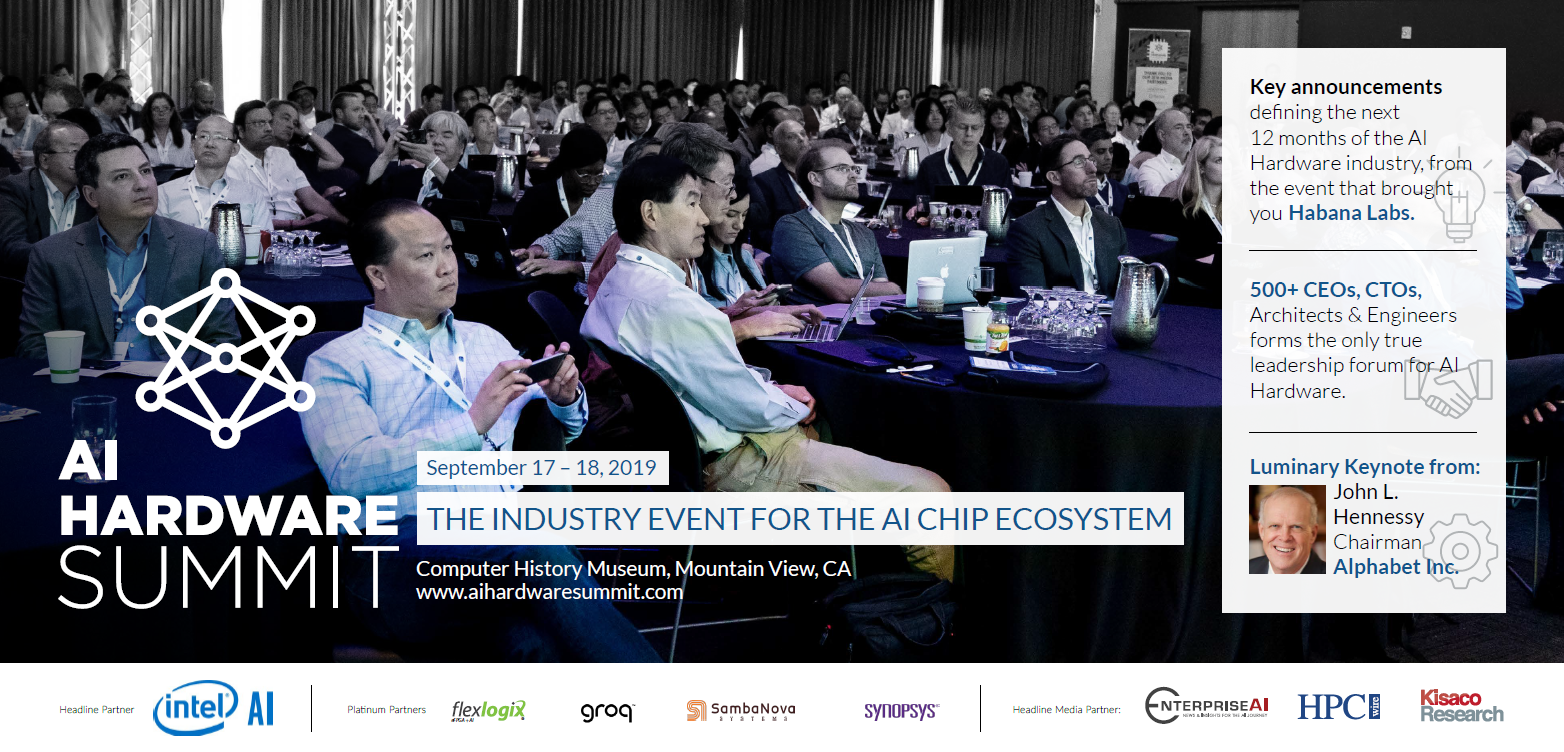
Agenda Released!
Conference Packages
Sending Your Team? Group Discounts Available!
Applicable for Primary Market, Service Provider and Industry Rates Only. Not available for Academic or ‘Start-Up’ rates
Book a Team of 3+ - Save an Additional 10% Off
Book a Team of 5+ - Save an Additional 15% Off
If you would like to register a team of 3 or more, please email [email protected] for your discount coupon code before registering. PLEASE NOTE: Discounts cannot be combined with Early Bird Pricing or any other discount or offer. If you have any questions about your registration, please call us on +44 (0)20 3696 2920
Ticket prices increase on
— —
Venue
COMPUTER HISTORY MUSEUM, MOUNTAIN VIEW, CA
We're very excited for the AI Hardware Summit to be returning to the Computer History Museum, CA.
With a four-decade history as the world’s leading institution exploring the history of computing and its ongoing impact on society. The Museum is dedicated to the preservation and celebration of computer history and is home to the largest international collection of computing artifacts in the world.
Need accommodation? We recommend one of the below nearby hotels:
- Hampton Inn & Suites Mountain View, 390 Moffett Blvd, Mountain View, CA 94043 (1.3 miles from CHM)
- Hotel Vue, 64W El Camino Real, Mountain View, CA 94040 (3 miles from CHM)
- Hilton Garden Inn, 4216 El Camino Real, Palo Alto, CA94306 (4 miles from CHM)

Accessibility:
We are committed to making our event accessible for everyone. If you are traveling for the event, Cloud of Goods provides mobility scooter rentals, wheelchair rentals, and other mobility solutions. They will deliver directly to you at the event, your hotel, the airport, or any other place of your choosing. Event attendees will receive a 20% discount when they use the code: RENTGEAR032
About Kisaco Research
Kisaco Research produces, designs and hosts B2B industry conferences, exhibitions and communities – focused on a specialized selection of topic areas.
Meet industry peers that will help build a career-changing network for life.
Learn from the mistakes of your peers as much as their successes—ambitious industry stalwarts who are happy to share not just what has made them successful so far but also their plans for future proofing their companies.
Note down the inspired insight that will form the foundation for future strategies and roadmaps, both at our events and through our online communities.
Invest both in your company growth and your own personal development by signing up to one of our events and get started.

